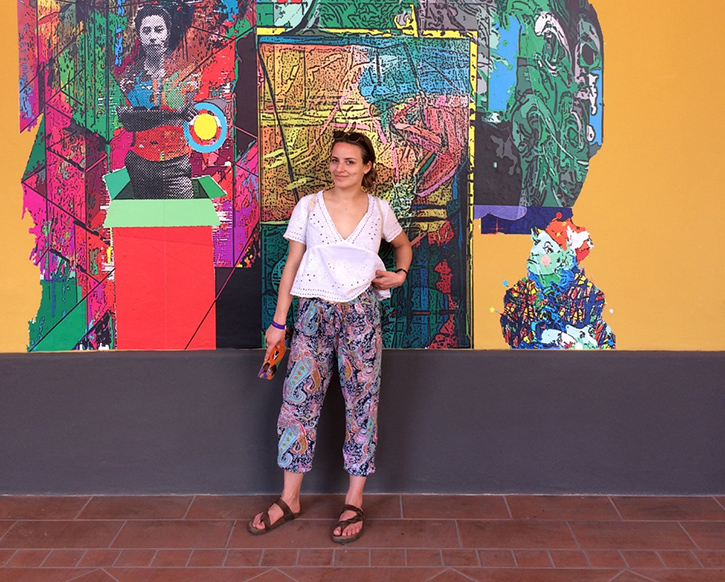
Nora Malatinszky, who is majoring in conflict analysis and resolution, said her extensive travels (above, at the Museo De Las Americas in San Juan, Puerto Rico) have provided a "perspective of seeing something that's bigger than you." Photo provided.
By her own count, George Mason University junior Nora Malatinszky has visited 26 countries: A couple trips (Austria and Germany) were for study-abroad purposes, but most were with her family.
She speaks four languages—English, Spanish, German and Hungarian—though she admitted her conversational Spanish is “a little rusty.”
That worldview is a foundation tailor-made for a student majoring in conflict analysis and resolution with a concentration in building peace in divided societies.
“Having that perspective of seeing something that’s bigger than you—that matters a lot,” Malatinszky said. “Being able to interact with different kinds of people has made it easier for me to talk to people from different backgrounds and have this bigger world picture about what other lives are out there.”
Malatinszky wants to be involved in those lives. If all goes as planned, she said, she hopes to work for an organization such as the World Bank and focus on anticorruption efforts and helping prevent structural violence.
Though she came to Mason, in part, because of its proximity to her family’s Fairfax, Virginia, home and on the recommendation of her mom, Szilvia Oszko, MA English ’01, Malatinszky said she has benefitted from her decision.
She pointed to the prestige of Mason’s School for Conflict Analysis and Resolution (S-CAR), the small class sizes that provide one-on-one interactions with faculty and the sense of community she said the school inspires.
“One of the things I value most is knowing my professors have done the work,” Malatinszky said. “They’ve been in the field, solved issues of genocide in Africa and, at the same time, know how to make the content really approachable.”
That said, Malatinszky gets the credit for taking advantage of the opportunity, said professor Daniel Rothbart, who taught Malatinszky in his CONF 302 Culture, Identity and Conflict class.
“She was deeply engaged in the class activities in a way that showed her knowledge and advanced the issues beyond what most students realize,” Rothbart said. “She contributed significantly to the life of the class.”
Rothbart said Malatinszky’s extensive international travel helped broaden her perspective.
“It gives her a basis for understanding other regions,” he said. “This is important in our work in our school. She understands how important it is for what we do to get into the groundwork to get into the details of a conflict.”
“It would be worthless if I didn’t have a way to channel it,” Malatinszky said. “Being in S-CAR has impacted me in being able to take that information and quantify it and organize and say, ‘This is how I can fix things, move forward and work in this field,’ and not just, ‘I’ve been all over the world; so, good for me.’”
